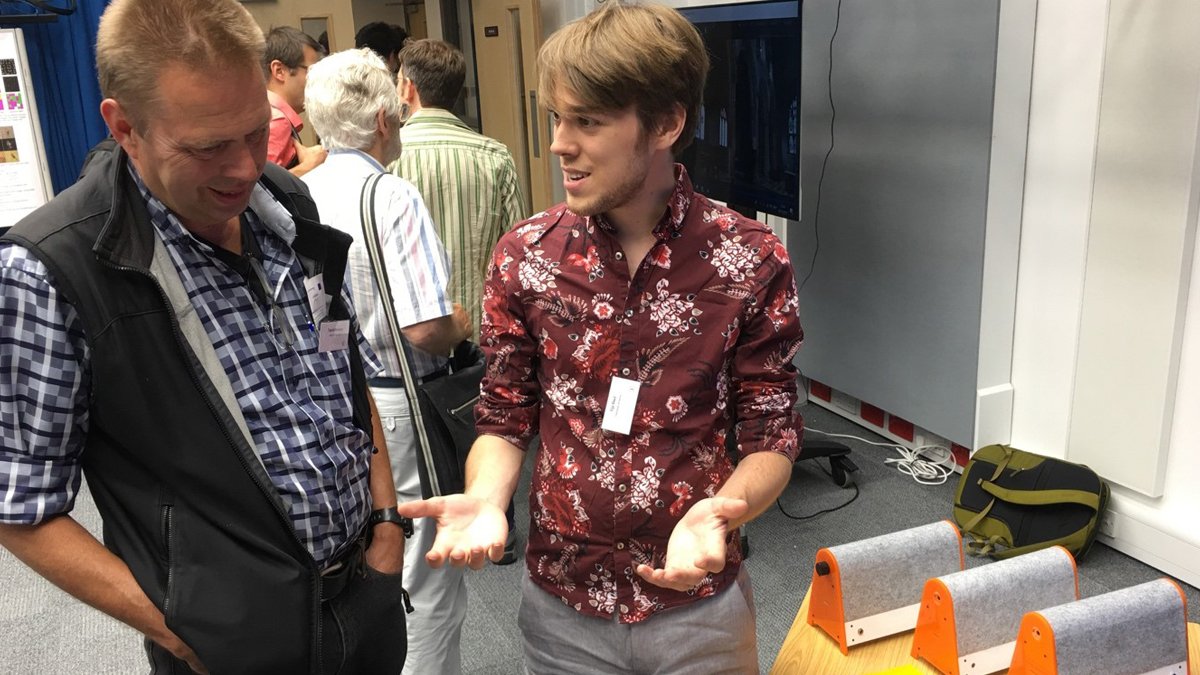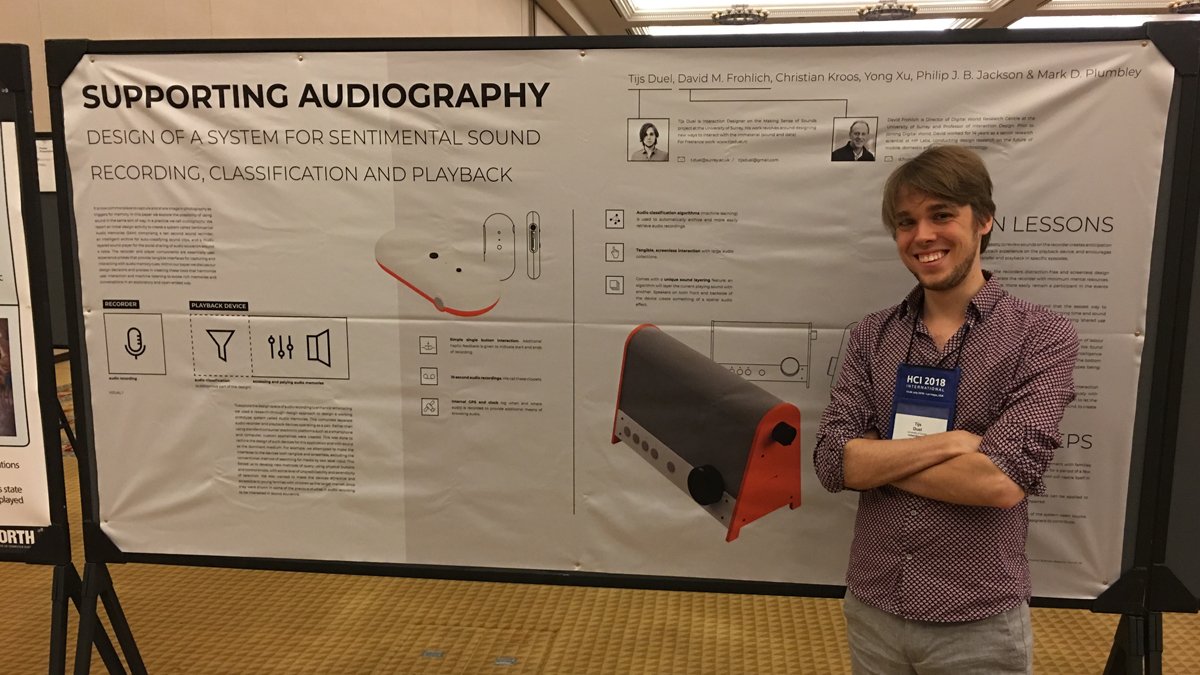How do we remember sound?
Members of the Centre for Vision, Speech and Signal Processing (CVSSP) and Digital World Research Centre (DWRC) introduced the Making Sense of Sounds project for Surrey Audio Day at the University of Surrey on 6 July.

Tijs Duel demonstrating the Sentimental Audio Memories System at Surrey Audio Day

Tijs presenting a poster outlining the system at the International Conference on Human-Computer Interaction in Las Vegas in July 2018
The event which brought together researchers and collaborators engaged in audio-related research, was opened by Philip Nelson, Executive Chair of EPSRC as keynote speaker. The programme included a presentation by Research Associate Tijs Duel on the Sentimental Audio Memories (SAM) project which sits within the broader Making Sense of Sounds project, funded by a grant of £1.59m from the EPSRC.
Current research on the sentimental properties of audio, shows that sound recordings trigger a sonic memory of events which can stimulate conversations about the past. The project seeks to extend research on the role of sound in memory and the design of tangible media interfaces which combine machine and human intelligence. The team are currently planning to run a trial of the SAM which will record and play back classified sounds in a tangible and attractive way. This may overcome existing challenges which occur when archiving, browsing and sharing sounds
"Within SAM we decided to challenge ourselves by creating novel interactions with large audio archives to support reminiscing. The screenless design encourages reflection and brings the focus to the activity of listening, fully playing on the qualities of sound as a memento." explained Tijs.
SAM project team member Christian Kroos, a cognitive scientist from the Centre for Vision, Speech and Signal Processing at the University of Surrey also presented the project at the Philosophy of Human-Technology Relations conference on 11 – 13 July. His focus on memory and remembrance posed questions such as ‘how does a recalled sound enfold over time in the mental ear?’ and ‘how do we remember sound?’ The discussions took into account the incremental design process of the SAM device and are linked to the broader topic of remembering sounds.
The project will run until 13 March 2019.
